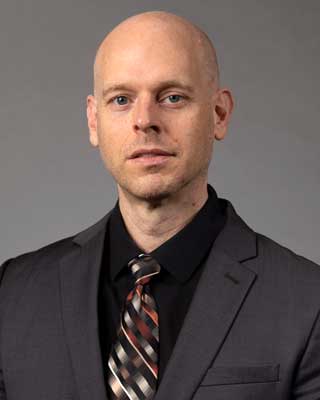Joseph Gaeddert

Dr. Joseph D. Gaeddert is the Assistant Director and a Research Associate Professor for the Spectrum Dominance Division at the Virginia Tech National Security Institute, holds a courtesy appointment in the Electrical and Computer Engineering department, and is a Wireless@VT affiliate faculty member. Prior to VT Gaeddert served 5 years as technical staff at the Massachusetts Institute of Technology Lincoln Laboratory (MIT LL) with the Advanced Satellite Communications and Systems Group. His research interests include digital communications systems design, software-defined radio technologies, real-time embedded processing, digital signal processing algorithms, signal detection/classification/characterization, special communications, and more recently deep-learning methods for wireless applications.
Additionally Dr. Gaeddert has developed an extensible open-source software-defined radio digital signal processing library, liquid-dsp (released under the MIT License), which is currently being used for numerous academic projects at Virginia Tech in other universities globally. These projects include wireless distributed computing, cognitive radio link-level adaptation, open-source WLAN with adaptive media access control, dynamic spectrum access networking, and software-defined radio resource management.
Dr. Gaeddert received his B.S. from the University of Kentucky in 2002, and his M.S. (2005) and Ph.D from Virginia Tech (2011) in electrical and computer engineering.
Against the Clock
Status: Available NowThere's a famous joke where someone starts to ask a comedian "What's the secret to good comedy?" but before they can finish, the comedian interrupts with "Good timing." The same can be said for digital communications (well, good timing and good carrier recovery).
This talk will cover algorithmically efficient means to estimate (and correct for) timing and carrier (frequency/phase) offsets for various signal types to generate custom waveforms. It will include practical examples with source code for participants to follow along with.

